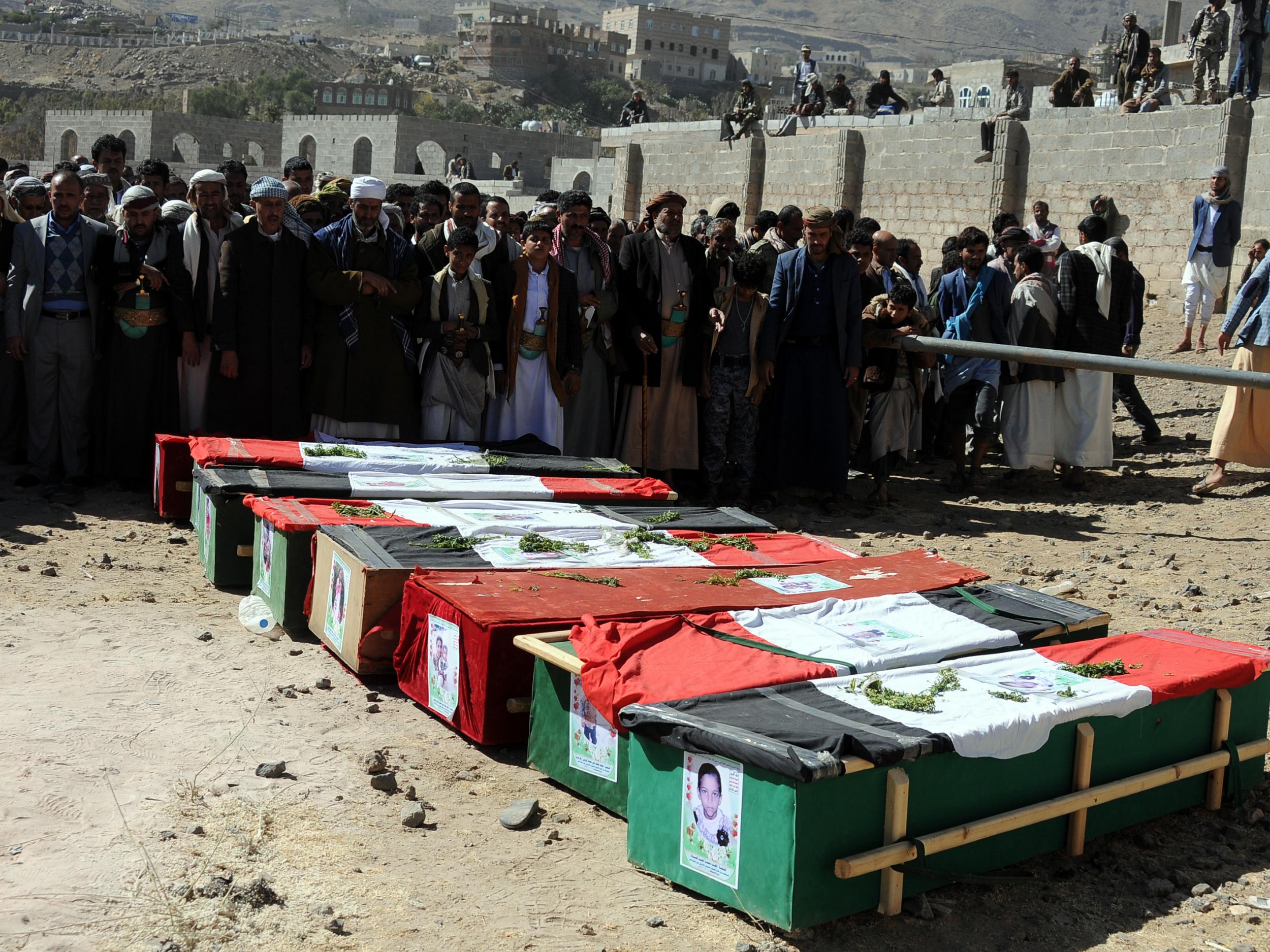British government accused of misleading public over arms sales to human rights abusers
MP says foreign secretary’s claims on arms exports misleading

Your support helps us to tell the story
From reproductive rights to climate change to Big Tech, The Independent is on the ground when the story is developing. Whether it's investigating the financials of Elon Musk's pro-Trump PAC or producing our latest documentary, 'The A Word', which shines a light on the American women fighting for reproductive rights, we know how important it is to parse out the facts from the messaging.
At such a critical moment in US history, we need reporters on the ground. Your donation allows us to keep sending journalists to speak to both sides of the story.
The Independent is trusted by Americans across the entire political spectrum. And unlike many other quality news outlets, we choose not to lock Americans out of our reporting and analysis with paywalls. We believe quality journalism should be available to everyone, paid for by those who can afford it.
Your support makes all the difference.Foreign secretary Jeremy Hunt has been accused of misleading parliament about UK weapons sales to repressive regimes, amid growing pressure on the government over the lucrative trade.
British arms sales to Saudi Arabia have come under renewed scrutiny in the wake of the murder of Saudi dissident journalist Jamal Khashoggi and the devastating civilian death toll from the war in Yemen.
The UK government has licensed nearly £5bn worth of arms to Riyadh since the conflict began in 2015, despite widespread civilian casualties and accusations of war crimes.
Mr Hunt has defended the lucrative trade, and the sale of UK weapons generally, telling parliament in October that restrictions on selling to repressive governments had been “strengthened under the Conservative-led coalition in 2014”.
But that position has been challenged by Labour MP Lloyd Russell-Moyle, who sits on the Committees on Arms Export Controls and claims that restricions on weapons sales have in fact been chipped away. He has now written to the foreign secretary and asked him to correct the record, pointing to a report by the committee that had discovered “a substantive weakening of UK arms export controls”.
“By representing the weakening of UK arms export controls as a strengthening of said controls, particularly in an argument for the approval of UK arms exports to Saudi Arabia [...] it appears to constitute an unintentionally misleading of parliament,” Mr Russell-Moyle wrote in the letter last week.
The MP for Brighton Kemptown told The Independent: “The government has learned how to bypass UK arms export control law to ensure that Paveway bombs flow uninterrupted from the Raytheon factory to the British-made and maintained planes used by Saudi Arabia in Yemen.”
At issue is a 2014 change to the wording of the rules that govern which countries can be sold weapons and military equipment made in the UK. According to the Committees on Arms Export Controls, the Conservative-Lib Dem coalition government changed the criteria from refusing arms exports “which might be used for internal repression”, to refusing “if there is a clear risk that items might be used for internal repression”.
The committee concluded that the change made it easier to sell weapons to countries which might use them for repressive means.
In 2017, arms sales to countries on the government’s own watchlist of human rights abusers doubled compared to the previous year.
The foreign office disputes the findings of the committee, however. A Foreign and Commonwealth Office spokesperson told The Independent that changes made in 2014 “included an update to the list of international obligations and commitments and an explicit reference to international humanitarian law.
“In addition to this was the inclusion of a new gender-based violence clause contained within criterion two, strengthening the government’s efforts to tackle violence based on gender across the world, as a result of the UK’s signature to the Arms Trade Treaty (ATT).”
Andrew Smith of Campaign Against Arms Trade said Mr Hunt has distorted the truth around British arms sales to rights abusers.
“Hunt’s claims that the government is tightening regulations couldn’t be further from the truth. He has followed the same appalling policies as his predecessors. The UK Government routinely arms and supports human rights-abusing regimes and dictatorships across the world,” he said.
“The arms sales that Hunt and his colleagues are promoting today could be used in atrocities for years to come. It’s time for him to end the distortions and stop the arms sales.”
Opposition to the sale of British arms to Saudi Arabia has been growing steadily since the Yemen war began in 2015, and reached a high point following the murder of Khashoggi.
Riyadh intervened in Yemen’s civil war in 2015 to reinstate the internationally recognised government of Abd Rabbu Mansour Hadi, who was ousted by Iran-backed Houthi rebels.
The fighting has killed at least 10,000 civilians – most of whom were victims of airstrikes carried out by the Saudi-led coalition – and left nearly 16 million people on the brink of famine.
The United Nations has accused the Saudi coalition of “widespread and systematic” strikes on civilian targets.
Within the Kingdom itself, Saudi authorities have been accused of carrying out a violent crackdown against Shia residents of the Eastern Province. Riyadh maintains those targeted were “terrorists”.
Despite those concerns, UK arms sales to Saudi Arabia rose from £1.8bn in the three years prior to the war in 2015, to £3.6bn over the next three years.
The coalition has admitted causing civilian casualties but attributes the deaths to “unintentional mistakes”, and says it is committed to upholding international law. The Houthis have also targeted civilians throughout the conflict, according to the UN.
Join our commenting forum
Join thought-provoking conversations, follow other Independent readers and see their replies
Comments